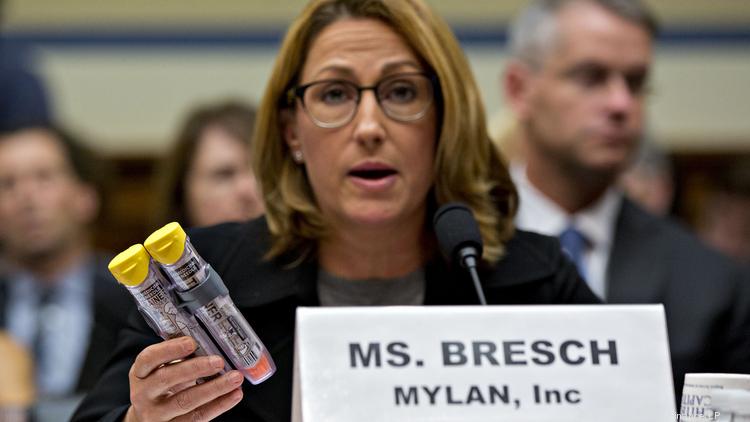Article originally published in the American City Business Journals on October 3, 2016
Chairman and CEO John Stumpf of Wells Fargo, CEO Heather Bresch of Mylan Pharmaceuticals, and former CEO Martin Shkreli of Turing Pharmaceuticals were recently in the unenviable position of being asked to testify before congressional committees on issues involving unconscionable actions by their companies.
It is no fun being in the hot seat in an unfriendly environment covered by national and international news organizations, as well as by social media.
Stumpf testified in front of the Senate Banking committee on Sept. 22 and in front of the House Financial Services Committee on Sept. 29. He was grilled on why, over a five-year period, Wells Fargo (NYSE: WFC) could not fix a toxic incentive-driven and unethical sales culture in which bank branch employees signed up customers for credit and debit cards they didn’t need and opened new bank accounts in customers’ names without their knowledge.
Some Wells Fargo employees who reported these abuses to the company’s Ethics Line were fired. Whistleblowers are protected from termination by the Sarbanes-Oxley and Dodd-Frank Acts, a violation that can carry up to a 10-year prison term.
Congressman Patrick McHenry (R-NC) asked Stumpf, “How can you rebuild trust? What standards are you holding yourself to, that sends a message to the rest of the folks in your organization that look to you for leadership and guidance? What are you doing to restore that [trust]?”
Stumpf did not have a satisfactory response.
Bresch of Mylan Pharmaceuticals (NASDAQ: MYL) appeared before the House Oversight and Government Reform Committee on Sept. 21 to explain the latest of 17 EpiPen price hikes to $609 for a package of two injectors, a 550 percent price increase over the past decade.
In August, as criticism of Mylan’s latest price hike of EpiPen mounted, Bresch stated, “I am running a business. I am a for-profit business. I am not hiding from that.”
This was an insensitive and arrogant comment to individuals who someday will need to use EpiPen to immediately counter a life-threatening allergic reaction but can’t afford it.
During the House Committee hearing, Rep. Gerald Connolly (D-Va.), commented to Bresch, “You virtually have a monopoly and use it to your advantage, but unfortunately, it is at the expense of people who need [your product].”
Shkreli testified before the House Oversight and Government Reform Committee on Feb. 4 and faced tough questioning about why Turing Pharmaceuticals raised the price of Daraprim from $13.50 to $750 per pill soon after the drug was acquired. This pushed the drug out of the financial reach of many patients. Daraprim is used to treat toxoplasmosis, a disease that weakens the immune system of people who have cancer or are HIV positive.
At a Forbes Healthcare Summit, Shkreli stated, “I probably would have raised the price [of Daraprim] higher … and made more profits … this is a capitalist society, capitalist rules, and my investors expect me to maximize profits, not to minimize them … [like we] are all taught in MBA class.”
Oh really? This is taught in MBA class? Let’s hope not.
The public, through their elected officials and government regulators, give businesses a license to operate. That license can be changed to stop abusive actions. Was this taught in Mr. Shkreli’s MBA class?
In my Feb. 17 article headlined, “Former pharma CEO Martin Shkreli tarnishes the image of his profession,” I wrote, “on rare occasions, corporate leaders lose sight of a major principle in business and in life. When they take an action that … is unreasonable or egregious, or act in a way that is disrespectful or with disdain, their behavior will come back to haunt them and [hurt the reputation] of their company.”
Stumpf, Bresch and Shkreli give CEOs a bad name. They are supposed to set the right tone and culture, as well as the moral and ethical compass for their companies.
Boards need to hold their CEOs accountable for tone and culture in addition to financial results.
No board wants its CEO to be called in front of a Congressional Committee to answer for their company’s egregious behavior.
Stan Silverman is the former president and CEO of PQ Corp. He also is founder and CEO of Silverman Leadership and is vice chairman of the board of trustees of Drexel University. Silverman earned a Bachelor of Science degree in chemical engineering and an MBA degree from Drexel University. He is also an alumnus of the Advanced Management Program at the Harvard Business School.

